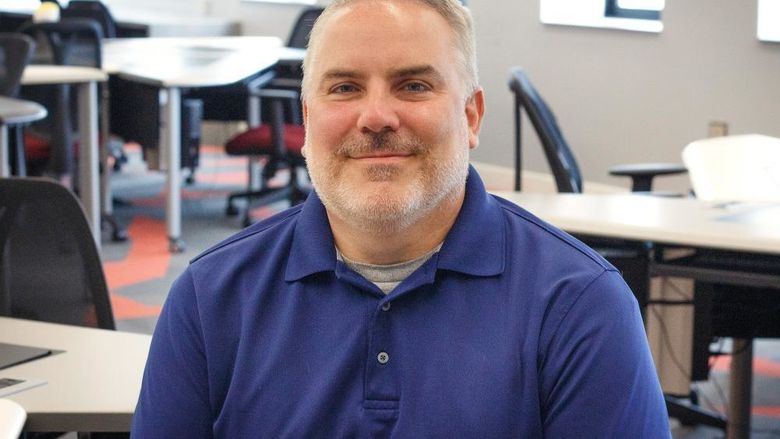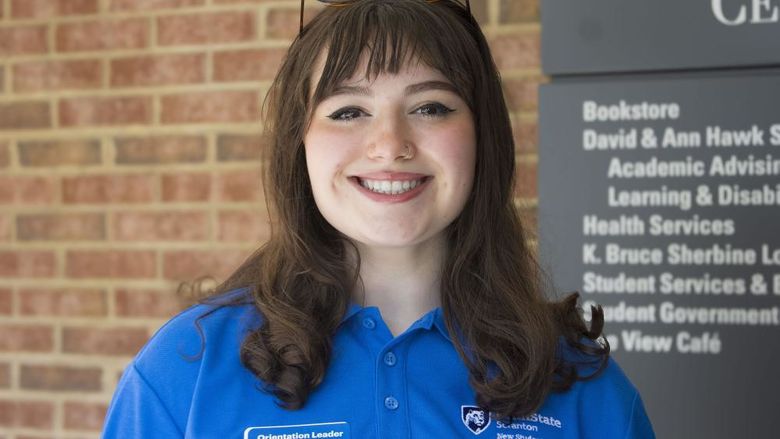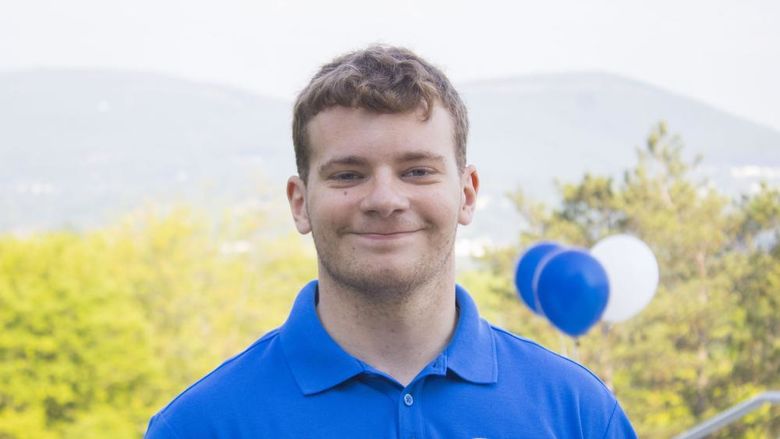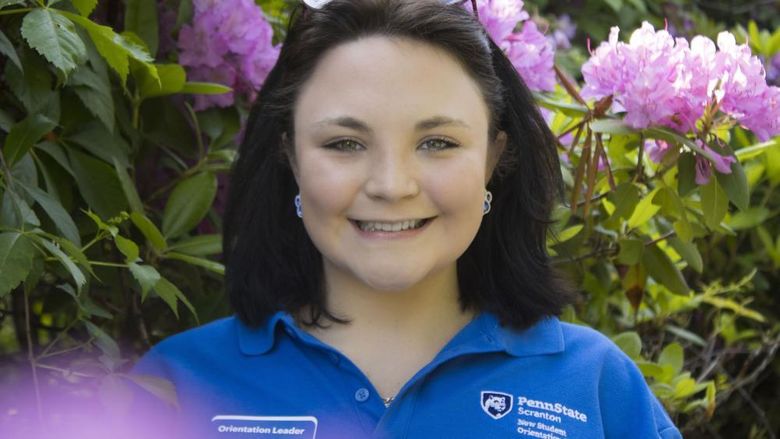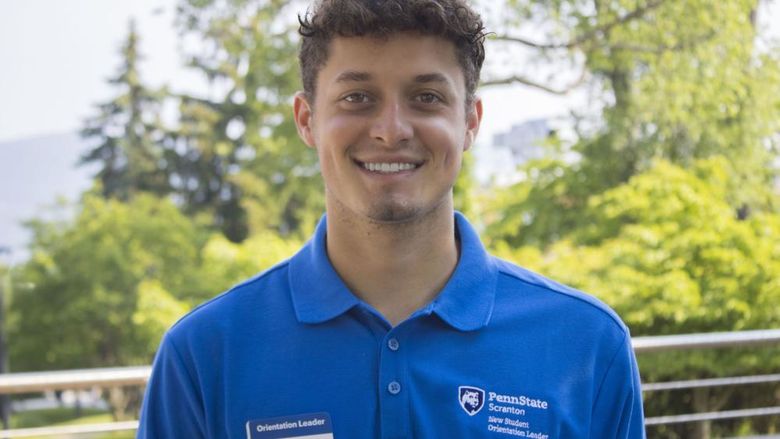Members of the Penn State Scranton Business Club, who became the first campus team to compete in the Smeal Undergraduate Sustainability Case Competition, pose for a photo with faculty members in front of the Business Building at Penn State ScrantonPictured from left are: Carlos Salazar Paz, Josiah Sisco, Luke Gardiner, Patricia Ryan, lecturer in business Kevin Feifer and James Wilkerson, Ph.D., assistant teaching professor and program coordinator for business and project and supply chain management.
DUNMORE, Pa. — Four Penn State Scranton business students became the first group of campus students to ever compete in a multi-university competition organized by the University's Smeal College of Business’ Center for the Business of Sustainability, Smeal Diversity Enhancement Programs, Lincoln University and Morgan State University.
Luke Gardiner, Patricia Ryan, Carlos Salazar Paz and Josiah Sisco took part in the second annual Smeal Undergraduate Sustainability Case Competition, which offers student teams the opportunity to work on a cross-disciplinary team, using business and markets to solve real-world social justice and environmental conservation challenges.
Each year’s competition involves a new case study implicating something about sustainability (environmental, social and economic) and its connection to business functioning. This year’s case was “The Business Response to Vaccination Inequality” in regards to COVID-19 and issues associated with vaccination availability, accessibility and acceptability, particularly for people of color in the United States. Data shows that these populations have been disproportionately affected by COVID-19 and these communities have faced the largest barriers to gaining access to vaccinations and to effective education about vaccination benefits.
Kevin Feiffer, lecturer in business at Penn State Scranton, was the faculty sponsor for the campus team and worked with the students, guiding them through the competition process until their elimination before the finalist round.
Feiffer met with Business Club members after learning about the competition. “We continuously discuss the importance of enhancing 21st century skills such as written and oral communication, teamwork and leadership," he said. "This was an opportunity to help improve some of those skills. Although the competition isn’t mandatory, four members decided to participate in the competition.”
The structure of the case study gives students three weeks to complete the mandatory submission. According to Feiffer, Penn State Scranton’s team worked diligently, around the clock, to complete the case requirements.
“The students were dedicated and determined to best represent Penn State Scranton,” he said. “I am incredibly proud of the hard work and dedication the group put forth. I am humbled by their commitment to the project and their educational journey at Penn State Scranton.”
Gardiner, one of the members of the campus team, said it felt like a major accomplishment knowing that the members of the Scranton team were the only students from Penn State Scranton to take on a challenge that previously no one else had taken on.
“Even though we did not win, this was still a win in my book. We learned a lot as a group, and I can speak for everyone when I say that we are eager to try again. Sometimes, it is more about the journey rather than the destination, and this competition was the perfect example of that sentiment,” he said.
Gardiner initially took on the challenge after a recommendation from Feifer.
“This semester I was trying to step out of my comfort zone more and more, and this sounded like the perfect opportunity to try something new," said Gardiner. "I would absolutely love to be a part of a future competition! I learned so much about teamwork through this experience, and I would take what I learned and apply it to future competitions.”
“It is a really big deal for non-University Park undergraduate teams even to exist, and the extra time and work (all outside of the classroom) required of our four undergraduates to do the case analysis and produce the required deliverables by tight deadlines are both noteworthy and newsworthy,” said Assistant Teaching Professor James Wilkerson, program coordinator for Penn State Scranton’s business and project and supply chain management programs.
“It is a big winner in my eyes, from the standpoint of representing our campus for the first time; competing head-to-head with Smeal College teams and at least two other universities’ teams; and showing the kind of co-curricular, experiential engagement that we want more and more of here,” he said. “It would be neat to see this take root to where our campus fields a team (or two or three!) every year and reminds the Penn State community that capable teams come out of the University College campuses.”
After such a positive experience this year, Feifer said he is hopeful that the campus and Business Club members will be entering a team on an annual basis going forward and encourages any student interested in participating to do so.
“I would be honored to work with students each year,” he said. “I believe it is a great experience and one that will enhance their education and add to their professional development.”
